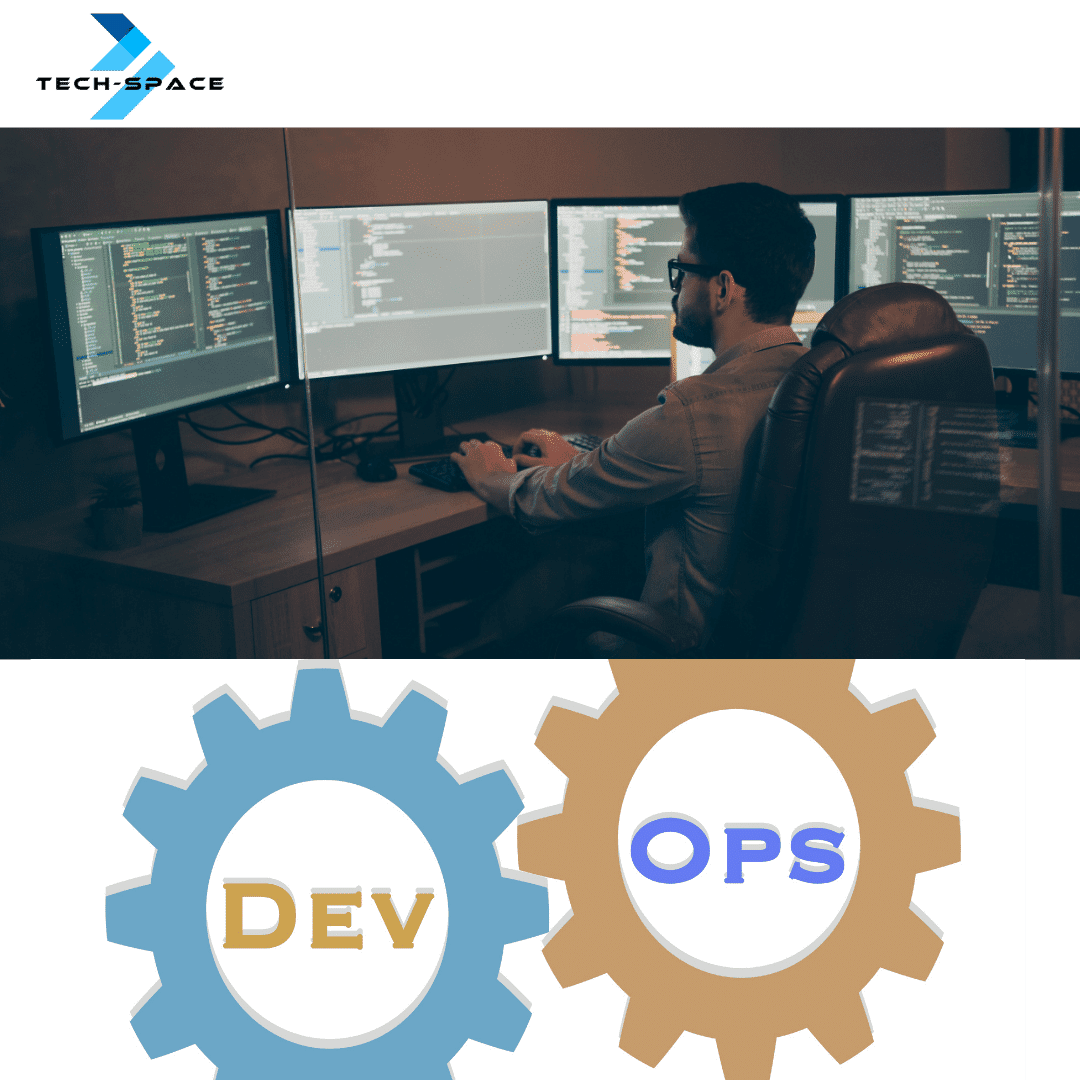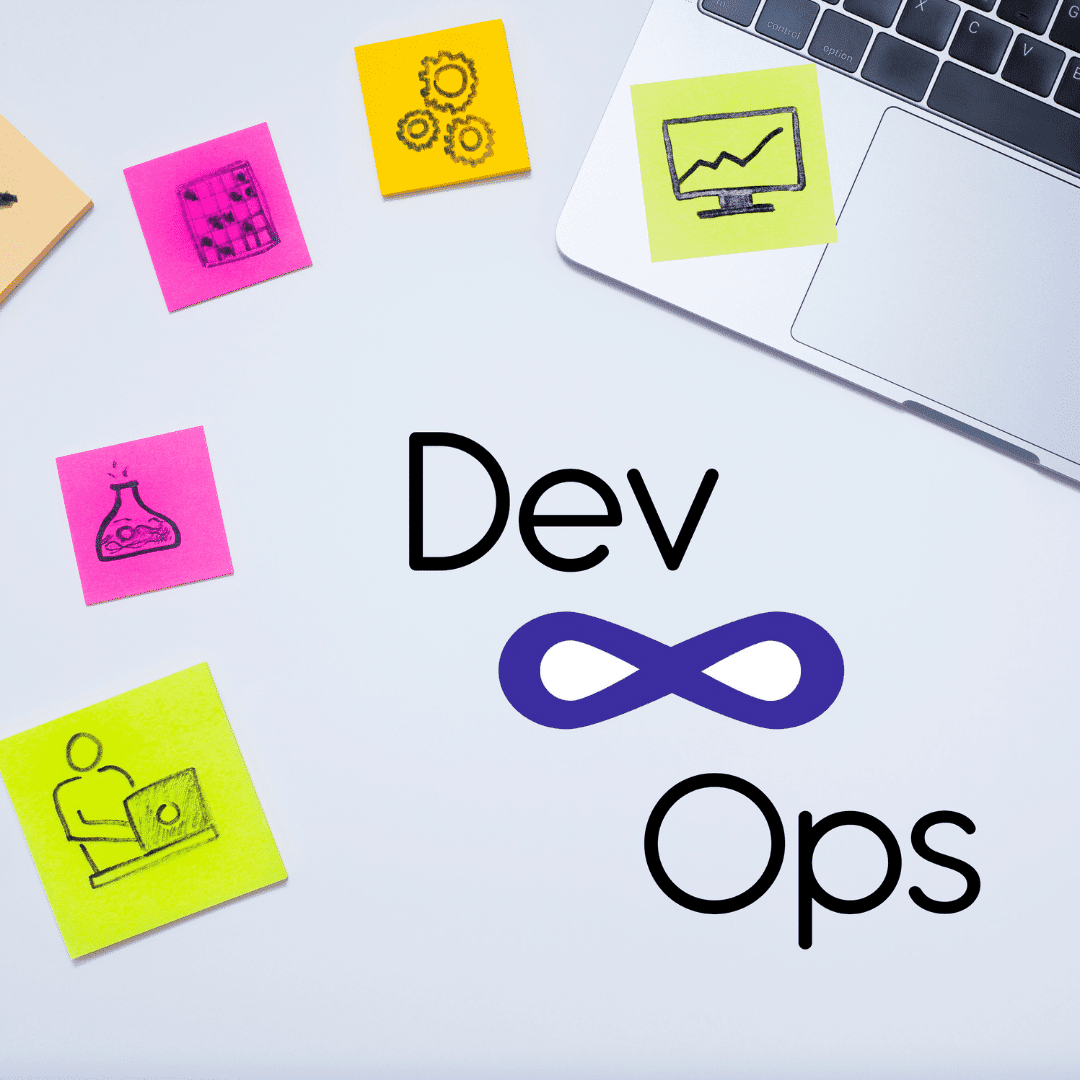Introduction
DevOps is a fundamental methodology that allows software development and IT operations teams to work together to build, test, and deploy software faster and with higher quality. The DevOps culture has grown in popularity recently as organizations have realized the benefits of increased collaboration, automation, and continuous delivery.

In this article, we will explore the following:
- What is a DevOps
- Before DevOps culture, how things used to be
- Why DevOps is relevant in most organizations
- The advantages of having DevOps practice
- How to become a DevOps Engineer
- What are the DevOps tools
- What makes DevOps unique in most IT organizations
- The future of DevOps
- How AI plays an essential role in DevOps
- Can AI replace DevOps jobs
1. What is DevOps?
DevOps is a set of practices that combines software development and IT operations to shorten the development lifecycle, delivering features, fixes, and updates frequently and ensuring high quality in the software. In addition, it aims to foster a culture of collaboration, communication, and feedback among developers, testers, and operations teams, which allows them to work together more effectively, deliver high-quality software faster, and reduce time to market.
2. Before DevOps culture, how things used to be
Before the advent of the DevOps culture, software development and IT operations were separate entities within an organization. Developers wrote code, and operations teams were responsible for deploying and maintaining it in production. However, this siloed approach led to communication gaps, delays, and a lack of collaboration between the teams. Developers were focused on writing code and testing it in their local environment, while operations teams were concerned with ensuring the infrastructure was stable, secure, and scalable. This approach resulted in long deployment cycles, high failure rates, and a lack of ownership and accountability.
3. Why is DevOps relevant in most organizations?
DevOps is relevant in most organizations because it enables them to quickly improve their software development processes, enhance their IT operations, and respond to changing market needs. Organizations adopting DevOps practices can achieve a faster time to market, better software quality, increased efficiency, and reduced costs. DevOps allows organizations to be agile and respond to changing market needs by continuously delivering new features, fixes, and updates.
4. Advantages of having a DevOps practice
There are many advantages of having a DevOps practice, some of which include the following:
- Faster time to market: DevOps enables organizations to deliver software faster, which means they can respond to changing market needs more quickly. This can help companies gain a competitive edge and improve their revenue streams.
- Improved quality: DevOps practices include continuous testing, which helps to catch defects early in the development cycle. This can lead to higher-quality software and reduced time and costs associated with bug fixes.
- Increased efficiency: DevOps practices automate many of the manual tasks associated with software development, testing, and deployment, which can lead to increased efficiency and reduced costs.
- Better collaboration: DevOps fosters a culture of collaboration and communication between developers, testers, and operations teams, leading to better problem-solving, faster resolution of issues, and improved knowledge sharing.
- Reduced downtime: DevOps practices include continuous monitoring and testing, which helps to detect and resolve issues before they become significant problems. This can minimize downtime and improve system availability.
5. How to become a DevOps Engineer
To become a DevOps engineer, you should have a combination of technical skills, soft skills, and experience. Some of the technical skills required for a DevOps engineer include the following:
- Knowledge of Linux: Most DevOps environments run on Linux, so it is vital to have a solid understanding of this operating system.
- Coding skills: DevOps engineers should be proficient in at least one programming language, such as Python, Ruby, or Java.
- Familiarity with automation tools: DevOps engineers should be familiar with automation tools such as Jenkins, Ansible, Puppet, or Chef.
- Knowledge of cloud platforms: Most modern software development and IT operations environments run on cloud platforms such as AWS, Azure, or Google Cloud. It is essential to have a solid understanding of these platforms.
- Understanding of containerization: Containerization technologies such as Docker and Kubernetes are becoming increasingly popular in DevOps environments. It is essential to have a good knowledge of these technologies.
In addition to technical skills, a DevOps engineer should have solid and soft skills, such as communication, collaboration, and problem-solving. DevOps engineers work in teams, so it is essential to communicate effectively with team members and stakeholders. Problem-solving skills are also necessary, as DevOps engineers often resolve complex issues in production environments.
To gain experience as a DevOps engineer, you can start working in IT operations or software development roles and gradually transition into a DevOps role. Many online courses, certifications, and boot camps can help you gain the technical and soft skills to become a DevOps engineer.
6. Which tools are commonly used in DevOps?
DevOps involves a range of tools to streamline software development and IT operations. The most commonly used tools include Jenkins, Ansible, Terraform, Docker, Kubernetes, Git, Grafana, Spinnaker, Prometheus, and more.
Many DevOps tools are available to help teams automate, test, and deploy their software more efficiently. Some of the most popular DevOps tools include:
- Jenkins: Jenkins is an open-source automation server that helps teams automate their software delivery pipelines. It is a popular tool for continuous integration and delivery (CI/CD).
- Ansible: Ansible is an open-source automation tool that helps teams automate configuration management, application deployment, and task automation.
- Terraform: Terraform is an open-source configuration management tool that helps teams automate infrastructure management and application deployment.
- Docker: Docker is a containerization technology that allows teams to create lightweight, portable containers for their applications.
- Kubernetes: Kubernetes is an open-source container orchestration platform that helps teams manage, scale, and deploy their containerized applications.
Grafana – a tool for visualizing and analyzing metrics and logs from various data sources.
Spinnaker – a tool for continuous delivery that allows for safe and fast application deployments to various cloud platforms.
Prometheus – a monitoring and alerting system that collects and analyzes metrics from systems, applications, and services.
Istio – a service mesh that helps to manage and secure microservices by providing traffic management, security, and observability.
Pulumi – a tool for deploying and managing infrastructure using familiar programming languages such as JavaScript, Python, and Go.
These are just a few of the many DevOps tools available. Choosing the right tools for your team depends on your specific needs and requirements.
7. What makes DevOps unique in most IT organizations?
DevOps is unique in most IT organizations because it fosters a culture of collaboration, communication, and feedback between developers, testers, and operations teams. This culture is often lacking in traditional software development and IT operations environments, which leads to communication gaps, delays, and a lack of accountability. DevOps enables teams to work together more efficiently, deliver software faster, and respond to changing market needs more quickly.
Another unique aspect of DevOps is its focus on automation. DevOps practices include automating many manual software development, testing, and deployment tasks. This can lead to increased efficiency, reduced costs, and improved quality.
8. The future of DevOps
The future of DevOps is bright as more and more organizations recognize the benefits of this approach to software development and IT operations. In addition, as businesses migrate to the cloud, containerization technologies like Docker and Kubernetes are also gaining traction. This is because they allow teams to create lightweight, portable containers that can run on any platform, making deploying applications quickly and efficiently easier.
In addition to containerization, the use of AI and machine learning in DevOps is also increasing. These technologies are being integrated into software delivery pipelines to help automate complex tasks and improve efficiency. For example, AI can analyze large amounts of data to identify patterns and predict issues before they occur. Likewise, machine learning can automate testing, identify the root cause of problems in production environments, and optimize performance.
The benefits of using AI and machine learning in DevOps are clear. By automating more complex tasks, teams can improve efficiency, reduce costs, and improve software quality. They can also respond more quickly to changing market needs, as these technologies help to speed up the software delivery process.
As the use of AI and machine learning in DevOps continues to grow, we will likely see even more innovative solutions in the future. For example, we may see the development of new tools that can help teams better manage and monitor their software delivery pipelines or the integration of AI into DevOps processes to provide more advanced analytics and insights.
Overall, the future of DevOps looks promising. As organizations adopt this approach to software development and IT operations, we expect to see more innovation, automation, and efficient software delivery processes. DevOps professionals can continue to drive this innovation and help their organizations succeed in today’s fast-paced digital landscape by staying up-to-date with the latest trends and technologies.
9. How AI plays an essential role in DevOps
AI plays an essential role in DevOps by helping teams automate more complex tasks and improve their software delivery processes. Some of the ways AI is being used in DevOps include:
- Predictive analytics: AI can analyze large amounts of data from software delivery pipelines, including code repositories, testing environments, and production systems. This data can identify patterns and predict issues before they occur.
- Automated testing: AI can be used to automate the testing of software, including unit tests, integration tests, and end-to-end tests. This can help teams improve the quality of their software and reduce the time and effort required for manual testing.
- Chatbots: AI-powered chatbots can provide instant feedback and support to developers and operations teams. This can help teams resolve issues more quickly and improve collaboration and communication.
- Intelligent automation: AI can automate more complex tasks in software delivery pipelines, including code reviews, security testing, and performance testing. This can help teams improve their efficiency and reduce the time and effort required for manual tasks.
- Root cause analysis: AI can be used to identify the root cause of issues in production environments. This can help teams resolve issues more quickly and improve system availability.
10. Can AI replace DevOps jobs?
AI is likely to replace DevOps jobs partially, as DevOps requires a combination of technical skills, soft skills, and experience. While AI can help automate many tasks associated with software development and IT operations, there is still a need for human skills such as communication, collaboration, and problem-solving.
However, AI will likely change the nature of DevOps jobs as teams adopt more AI-powered tools and technologies. As a result, DevOps engineers will need to develop new skills to work effectively with AI and machine learning systems, including analyzing and interpreting large amounts of data and understanding how to integrate AI into their software delivery pipelines.
Conclusion
DevOps is a robust methodology that enables software development and IT operations teams to work together more effectively to deliver high-quality software faster. A collaboration, communication, and feedback culture foster a sense of ownership and accountability among team members. As a result, DevOps is relevant in most organizations, as it helps improve software development processes, enhance IT operations, and quickly respond to changing market needs. As DevOps continues to evolve, AI and machine learning will play an increasingly important role in automating complex tasks and improving software delivery processes. However, while AI can help teams automate many studies, there is still a need for human skills such as communication, collaboration, and problem-solving.

Bonus Tips
Here are some bonus tips to help you succeed in DevOps:
- Focus on continuous learning: DevOps is a fast-paced and constantly evolving field. To stay relevant, you must stay up-to-date with the latest tools, technologies, and trends. Make sure to invest time in continuous learning, whether taking online courses, attending conferences, or reading industry publications.
- Build a strong foundation in core technologies: To become a successful DevOps engineer, you need to have a strong foundation in core technologies such as Linux, programming languages, and cloud platforms. Make sure to invest time in developing these skills, as they will form the backbone of your DevOps practice.
- Develop solid and soft skills: Soft skills such as communication, collaboration, and problem-solving are essential for success in DevOps. Make sure to invest time in developing these skills, as they will help you work effectively in teams and resolve complex issues.
- Embrace automation: Automation is at the heart of DevOps. Make sure to embrace automation wherever possible, as it can help you save time, reduce costs, and improve the quality of your software.
- Focus on continuous integration and delivery: Continuous integration and delivery are essential for DevOps. Make sure to focus on these areas, as they can help you deliver high-quality software faster and quickly respond to changing market needs.
- Practice good security hygiene: Security is a top priority in DevOps. Make sure to practice good security hygiene, such as using secure coding practices, implementing access controls, and conducting regular security testing.
- Foster a culture of collaboration: DevOps is all about collaboration and communication. Make sure to foster a culture of collaboration within your team, as it can help you work more effectively and achieve better results.
- Use metrics to measure success: Metrics are essential for measuring the success of your DevOps practice. Make sure to use metrics to track your progress, identify areas for improvement, and demonstrate the value of DevOps to stakeholders.
- Focus on continuous improvement: DevOps is all about continuous improvement. Make sure to focus on this aspect of your practice, as it can help you stay competitive and deliver high-quality software faster.
- Be agile: Agility is a crucial aspect of DevOps. Make sure to adopt an agile mindset, embrace change, and be willing to adapt to new technologies and trends.
By following these tips, you can develop a successful DevOps practice and achieve better software development and IT operations results. Good luck on your DevOps journey!




